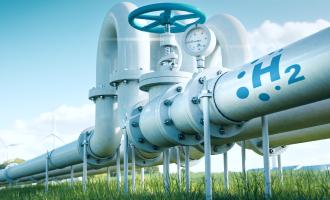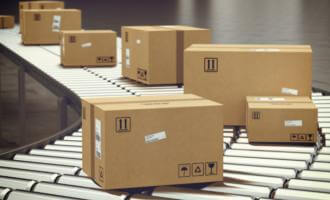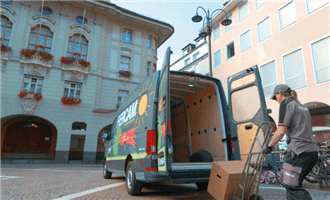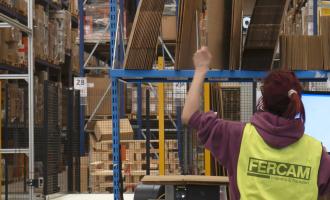
Intermodal transport: The skip-the-line ticket to Northern Europe
The resumption of post lockdown trading does not necessarily mean having to deal with long queues. The right answer to make transport more efficient, safe, and eco-sustainable, is traveling by rail. And yet the current infrastructure and mode of operation still need improvements for this solution to be truly competitive.
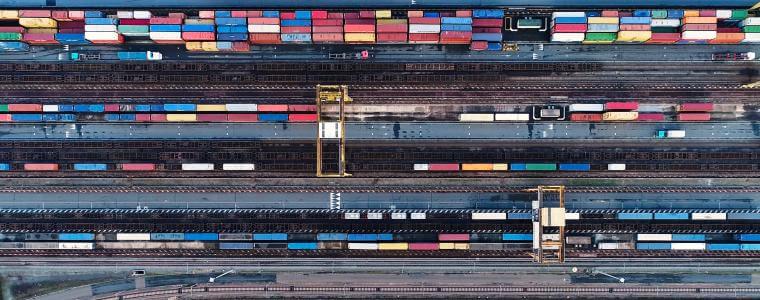
Intermodal transport has three distinct advantages: optimization of resources, safety, and environmental sustainability
Resources are optimized considerably when using an intermodal transport system. On the rail line, a crew of only 1 or 2 drivers can transport 32 semi-trailers at the same time, at a significantly higher speed than road vehicles. In addition, the transportable weight is 15% higherthan the limits for road transport, making this solution particularly convenient for the transport of heavy goods.
Rail traffic is not banned at night, at weekends or on public holidaysand therefore allows more efficient use of transport time. In addition, on the so-called "rolling highway" (or RolA, Rollende Autobahn), the entire vehicle travels by rail with a driver in the passenger wagon. This means that the obligatory rest times of the drivers are also used during transport, and they can then complete the last section on the road.
As with all fully loaded transports, once the swap body has been sealed, the goods do not undergo any intermediate processing, arriving at their destination without the need for transshipment during transportation. This minimizes the possibility of damage or contaminationand is an inherent safeguard. Intermodal transport offers additional protection against theft and damage: as it does not have to stop on the road for mandatory rest periods, the risk for valuable goods is virtually eliminated.
Finally, it is one of the best transport solutions from the point of view of environmental sustainability, thanks to the substantial reduction of harmful emissions (up to -67%)and the reduction of vehicles on the road. Current technological development projects also aim to achieve a more intelligent management of consumption in the future, focusing on energy recovery during braking to compensate for the energy absorption of traction thanks to 2-way power points (not yet widespread).Partenze garantite con il Company Train FERCAM
Thanks to careful planning and extensive experience in travel optimization, FERCAM’s intermodal transport service represents an excellent solution for import and export needs to and from Northern Europe, which overcomes the difficulties posed by transit via Brenner. With guaranteed slots on the Company Train, we provide our customers with transport on 12 trains a week, 6 from Italy and 6 inbound, on the nerve center lines Verona - Cologne and Rotterdam, Busto Arsizio - Cologne and Rotterdam and Novara - Cologne. From the arrival terminals, the goods then travel by road to final destinations throughout Northern Europe.Impacts of the lockdown phase and necessary interventions
Due to lower demand, the capacity use of trains during the emergency phase has droppedconsiderably, leading to the cancellation of some departures. According to FerCargo's recent report on the relationship between health emergencies and rail freight, the drop in transport activity in March and April averaged 35%. This figure is consistent with the temporary suspension of production and commercial activities at a global level and will have effects that will undoubtedly extend for some months to come.
However, the emergency phase has also clearly demonstrated the need to increase railway capacity: during this period, cargo trains have been able to run very punctually thanks to the drop in passenger traffic, which means that management is normally not optimal. Two counterproductive factors coexist in Italy: underuse of the infrastructureand reduced accessibility to the rail network. This results in a lack of effective operation, especially in the case of inadequate rail terminal equipment. Adjustments would be necessary, in particular with respect to the range of networks and loading gauges, as well as terminals and junctions. Finally, the creation of efficient freight networks, covering the whole of Europe, and the implementation of new connections networks that respond adequately to the needs of the market are extremely important.
In Italy, with the "Simplification" Law Decree, a number of measures were introduced on the 7th July, whereby some of the necessary improvements can be made. The hope is that the investments will be correctly distributed to strengthen hubs, intervene on bottlenecks and optimize infrastructures that truly represent added value for traffic management.


 Language
Language
